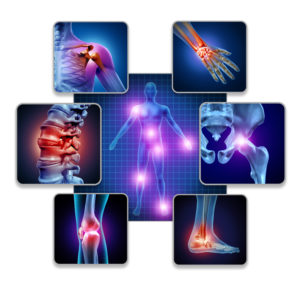What is inflammation?
What is inflammation? Is it dangerous?
Inflammation occurs when there is injury or infection to the body. It is how your body sends a signal to your immune system to start repairing or healing the damaged area. While it is not always dangerous because it helps your body defend against the bacteria or viruses that have entered into your body. However if left untreated for too long, then yes, it can become dangerous.
There are two types of inflammation, acute and chronic.Acute Inflammation
Acute inflammation is your body’s immediate response to infections and injuries. This inflammation, sent by a healthy immune system, helps your body heal. The inflammation is sent by your immune system along with white blood cells to the damaged or infected area to surround and protect the area and start the healing process. Such as when you have the flu or cut your finger.
When the inflammation process does not turn off, or is triggered by something other than an infection or injury, it is considered chronic inflammation and this can be dangerous.Chronic Inflammation
As stated above, when your body is producing inflammation and the process does not turn off, the accumulation of inflammation can become chronic. Chronic inflammation could either be a sign that something in your body is in need of repair or is unhealthy and the body is trying to protect itself. An example could be plaque buildup or your body’s response to ongoing toxins, such as cigarette smoke, or obesity. Chronic inflammation, if left untreated, can also contribute to other conditions.

Several symptoms of chronic inflammation include:
- fatique and low energy levels
- brain fog symptoms such as mental clarity, concentration and focus
- body aches and pains
- joint pain and stiff joints
- back pain
- skin issues such as rashes
- weight gain
- weight loss
- depression
- anxiety
- common digestion issues such as diarrhea, gas, bloating or constipation
- excess mucus production
- nervous system complications such as dizziness, or the feeling of being off-balance
- insulin resistance
- blood clotting problems
- dry eyes
Causes of Chronic Inflammation
There are several factors believed to be the cause of chronic inflammation.
- untreated injury or infection
- long term exposure to chemicals or pollutants
- smoking
- obesity
- alcohol
- chronic stress
- high calorie diet
- regular consumption of certain foods
- sucrose, fructose and corn syrups
- trans-fats, typically found in processed foods, frozen fried food, and bakery items
- saturated fats, found in cheese, dairy and meet products
- refined carbs such as baked foods with sugar and flour, such as bread, cereals and pastries
- MSG, found in many sauces, condiments and soups
- aspartame
Treatment or Prevention of Chronic Inflammation
In most cases, chronic inflammation can be limited and removed from the body by making lifestyle changes. The removal or limitation of the causes listed above is the best place to start. There are many supplements on the market, some natural and holistic, but taking supplements will not solve the problem if you continue to indulge or be exposed to the cause of your inflammation. If you are suffering from any of the symptoms listed above, take an honest look at your lifestyle and eating habits. By the process of elimination, start removing items from your daily activities that could be a cause. In a short period of time, not only will you start to feel better, you should also notice other changes, such as sleeping better, less anxiety, and even weight loss.




